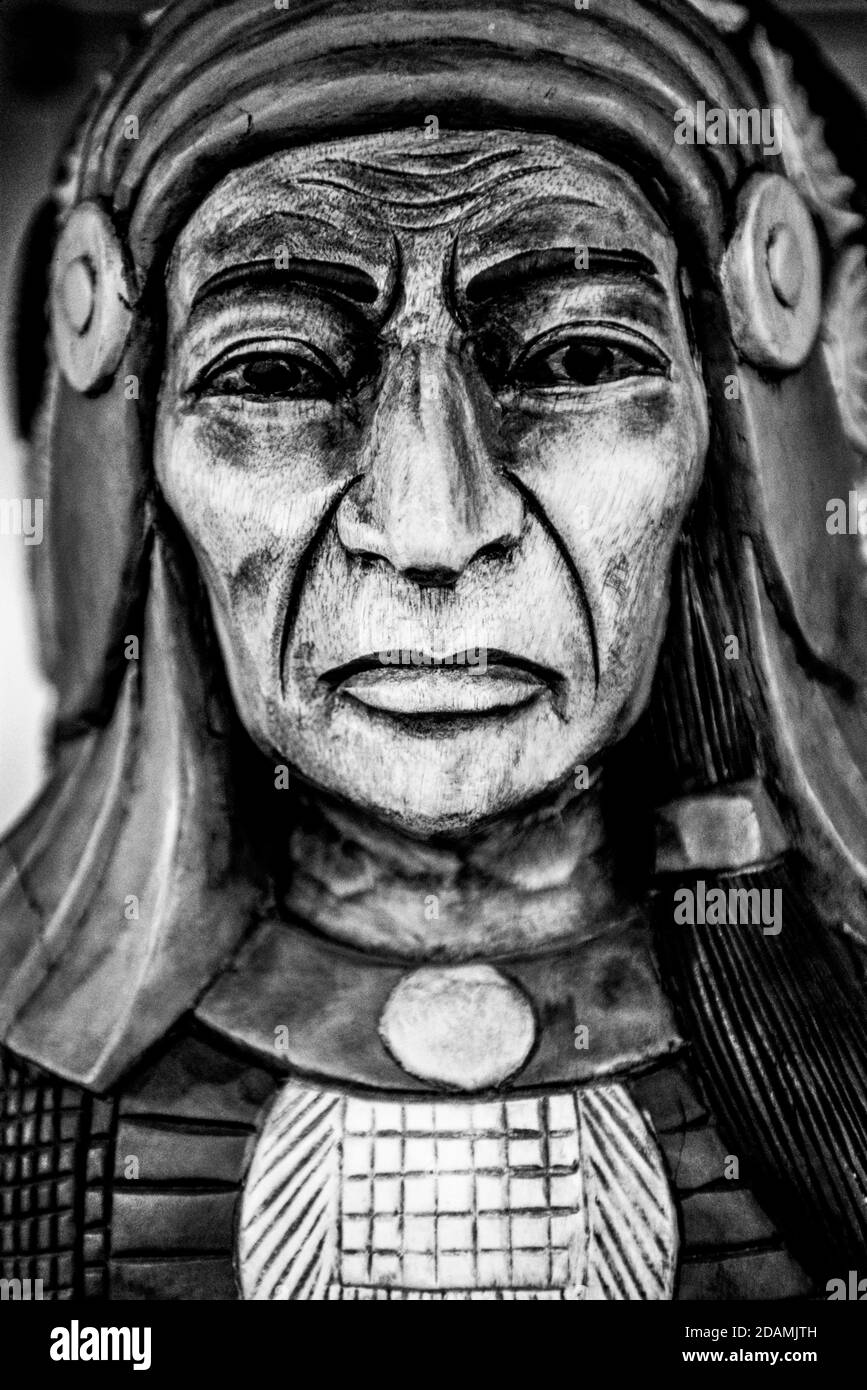A " Cigar Store Indian " stands outside a Rome, GA tobacco store.

Image details
Contributor:
Ken Hawkins / Alamy Stock PhotoImage ID:
2DAMJTHFile size:
99.6 MB (5.4 MB Compressed download)Releases:
Model - no | Property - noDo I need a release?Dimensions:
4818 x 7224 px | 40.8 x 61.2 cm | 16.1 x 24.1 inches | 300dpiDate taken:
11 November 2020Location:
Rome, GAMore information:
The cigar store Indian or wooden Indian is an advertisement figure, in the likeness of a Native American, used to represent tobacconists. The figures are often three-dimensional wooden sculptures several feet tall – up to life-sized. They are still occasionally used for their original advertising purpose, but are more often seen as decorations or advertising collectibles, with some pieces selling for hundreds of thousands of dollars. People within the Native American community often view such likenesses as a caricature or as depictions that perpetuate stereotypes, drawing an analogy to the African-American lawn jockey. The cigar store Indian became less common in the 20th century for a variety of reasons. Sidewalk-obstruction laws dating as far back as 1911 were one cause. Later issues included higher manufacturing costs, restrictions on tobacco advertising, and increased sensitivity towards depictions of Native Americans, all of which relegated the figures to museums and antique shops. Many also were destroyed during scrap drives for metal and wood during World War I and World War II. Cigar store figures are now viewed as folk art, and some models have become collector's items, drawing prices up to $500, 000. Modern replicas of cigar store Indians are still made for sale, some as cheap as $600. People within the Native American community often view such likenesses as offensive for several reasons. Some objections are because they are used to promote tobacco use as recreational instead of ceremonial. Other objections are that they perpetuate a "noble savage" or "Indian princess" caricature or inauthentic stereotypes of Native people, implying that modern individuals "are still living in tepees, that we still wear war bonnets and beads." drawing parallels to the African-American lawn jockey